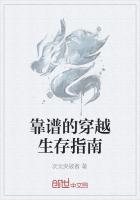His father had lived longer--long enough to make of himself something horribly near an imbecile, before he died suddenly in Paris.The Mount Dunstan who succeeded him, having spent his childhood and boyhood under the shadow of the "bad lot," had the character of being a big, surly, unattractive young fellow, whose eccentricity presented itself to those who knew his stock, as being of a kind which might develop at any time into any objectionable tendency.His bearing was not such as allured, and his fortune was not of the order which placed a man in the view of the world.He had no money to expend, no hospitalities to offer and apparently no disposition to connect himself with society.His wild-goose chase to America had, when it had been considered worth while discussing at all, been regarded as being very much the kind of thing a Mount Dunstan might do with some secret and disreputable end in view.No one had heard the exact truth, and no one would have been inclined to believe if they had heard it.That he had lived as plain Jem Salter, and laboured as any hind might have done, in desperate effort and mad hope, would not have been regarded as a fact to be credited.He had gone away, he had squandered money, he had returned, he was at Mount Dunstan again, living the life of an objectionable recluse--objectionable, because the owner of a place like Mount Dunstan should be a power and an influence in the county, should be counted upon as a dispenser of hospitalities, as a supporter of charities, as a dignitary of weight.He was none of these--living no one knew how, slouching about with his gun, riding or walking sullenly over the roads and marshland.
Just one man knew him intimately, and this one had been from his fifteenth year the sole friend of his life.He had come, then--the Reverend Lewis Penzance--a poor and unhealthy scholar, to be vicar of the parish of Dunstan.Only a poor and book-absorbed man would have accepted the position.What this man wanted was no more than quiet, pure country air to fill frail lungs, a roof over his head, and a place to pore over books and manuscripts.He was a born monk and celibate--in by-gone centuries he would have lived peacefully in some monastery, spending his years in the reading and writing of black letter and the illuminating of missals.
At the vicarage he could lead an existence which was almost the same thing.
At Mount Dunstan there remained still the large remnant of a great library.A huge room whose neglected and half emptied shelves contained some strange things and wonderful ones, though all were in disorder, and given up to dust and natural dilapidation.Inevitably the Reverend Lewis Penzance had found his way there, inevitably he had gained indifferently bestowed permission to entertain himself by endeavouring to reduce to order and to make an attempt at cataloguing.
Inevitably, also, the hours he spent in the place became the chief sustenance of his being.
There, one day, he had come upon an uncouth-looking boy with deep eyes and a shaggy crop of red hair.The boy was poring over an old volume, and was plainly not disposed to leave it.He rose, not too graciously, and replied to the elder man's greeting, and the friendly questions which followed.
Yes, he was the youngest son of the house.He had nothing to do, and he liked the library.He often came there and sat and read things.There were some queer old books and a lot of stupid ones.The book he was reading now? Oh, that (with a slight reddening of his skin and a little awkwardness at the admission) was one of those he liked best.It was one of the queer ones, but interesting for all that.It was about their own people--the generations of Mount Dunstans who had lived in the centuries past.He supposed he liked it because there were a lot of odd stories and exciting things in it.
Plenty of fighting and adventure.There had been some splendid fellows among them.(He was beginning to forget himself a little by this time.) They were afraid of nothing.They were rather like savages in the earliest days, but at that time all the rest of the world was savage.But they were brave, and it was odd how decent they were very often.
What he meant was--what he liked was, that they were men--even when they were barbarians.You couldn't be ashamed of them.Things they did then could not be done now, because the world was different, but if--well, the kind of men they were might do England a lot of good if they were alive to-day.They would be different themselves, of course, in one way--but they must be the same men in others.Perhaps Mr.Penzance (reddening again) understood what he meant.
He knew himself very well, because he had thought it all out, he was always thinking about it, but he was no good at explaining.
Mr.Penzance was interested.His outlook on the past and the present had always been that of a bookworm, but he understood enough to see that he had come upon a temperament novel enough to awaken curiosity.The apparently entirely neglected boy, of a type singularly unlike that of his father and elder brother, living his life virtually alone in the big place, and finding food to his taste in stories of those of his blood whose dust had mingled with the earth centuries ago, provided him with a new subject for reflection.
That had been the beginning of an unusual friendship.













